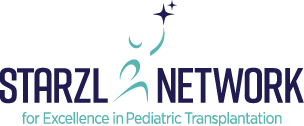PARTNER Results
Module 2
PARTNER: PAtient-centered Research in pediatric TransplaNt-Engaging families+Recipients
The Starzl Network for Excellence in Pediatric Transplantation in collaboration with UPMC Children’s Hospital of Pittsburgh, UCSF Benioff Children’s Hospital, Starzl Network Patient & Family Voice, and Transplant Families recently received a Patient Centered Outcomes Research Institute (PCORI) Eugene Washington Engagement Award. The two-year award will support our project, PAtient-centered Research in pediatric TransplaNt-Engaging families+Recipients (PARTNER).
PARTNER represents a novel effort in the field of transplantation: it is co-led by parents of transplant recipients and healthcare providers. In PARTNER, we seek to build on the established bonds between providers and patient partners, using the infrastructure and partnerships of the Starzl Network and Transplant Families to expand from personal relationships into organizational partnerships with shared priorities, knowledge, and a sustainable capacity to do collaborative patient-centered outcomes research (PCOR).
For full project details, please visit https://starzlnetwork.org/partner/
Module 2
How can I contribute to patient-centered outcomes research?
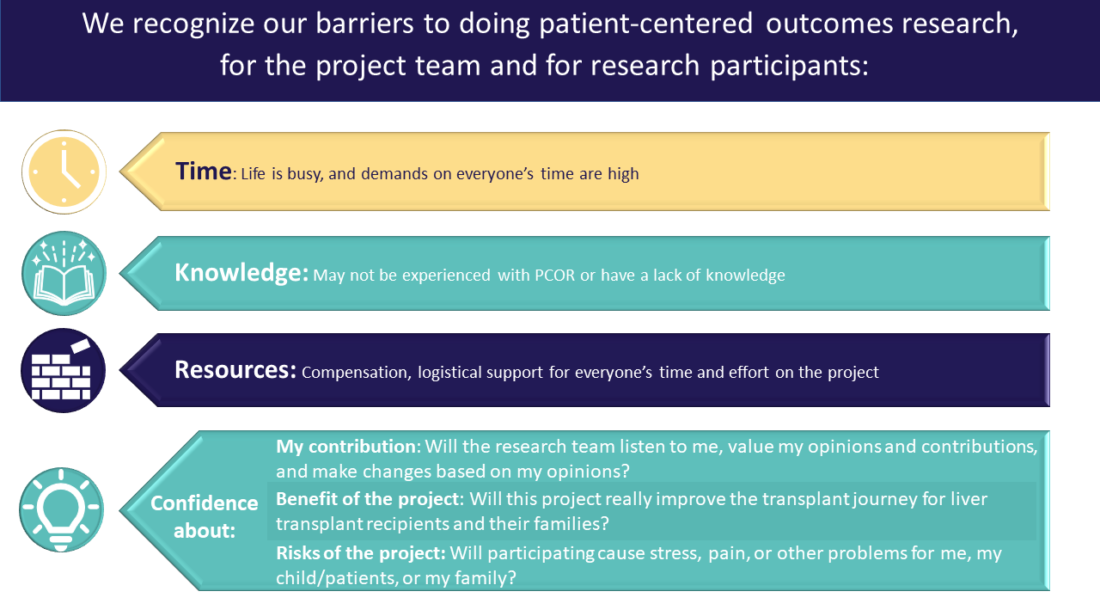
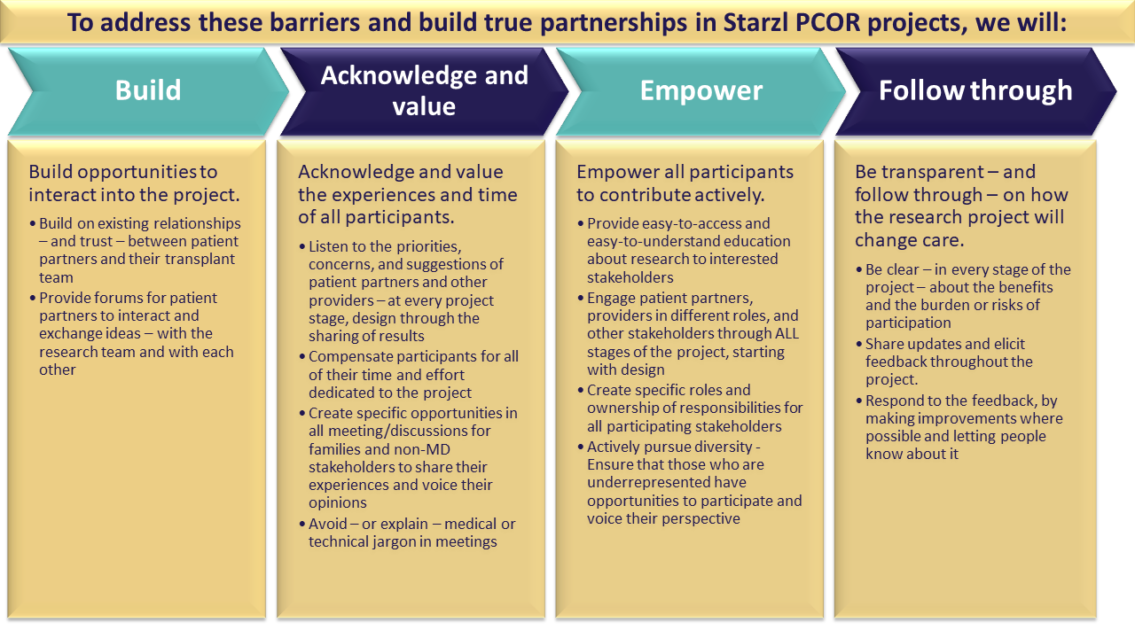
Module 2 Participants
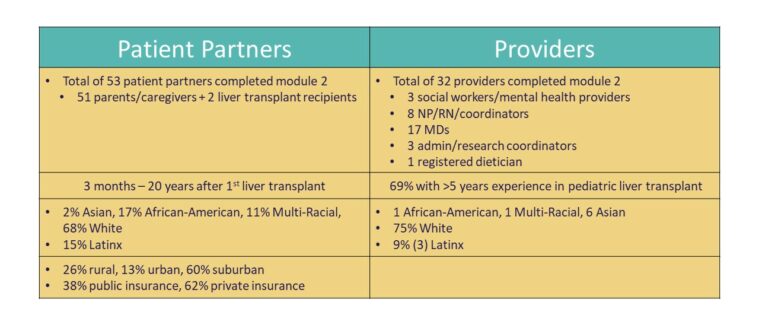
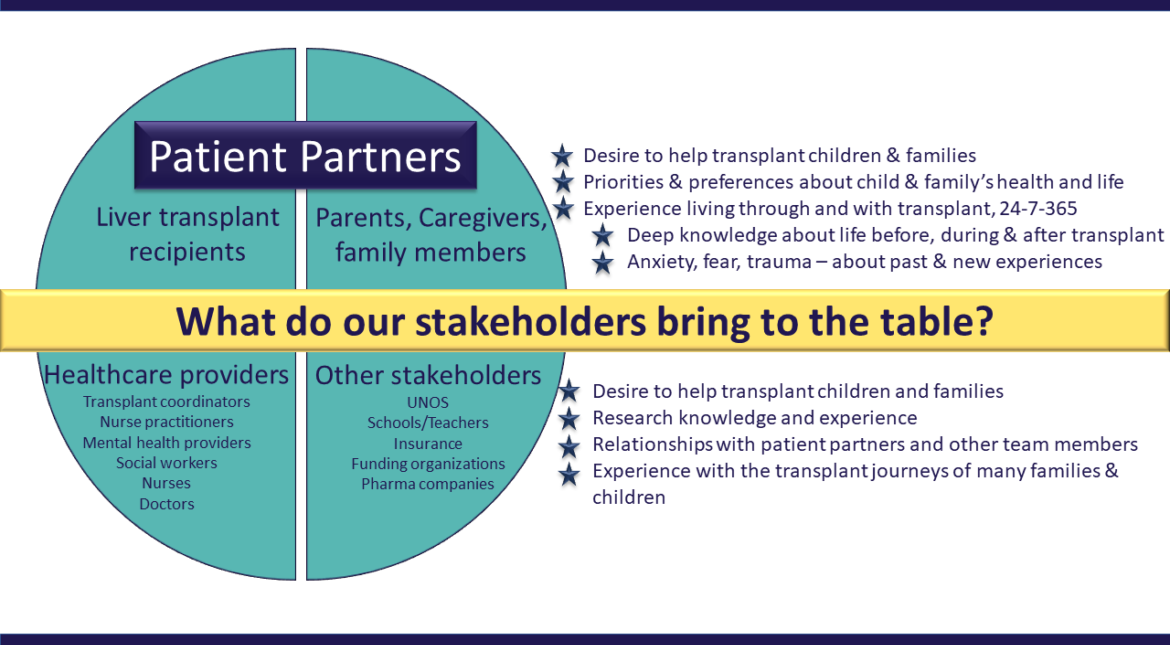
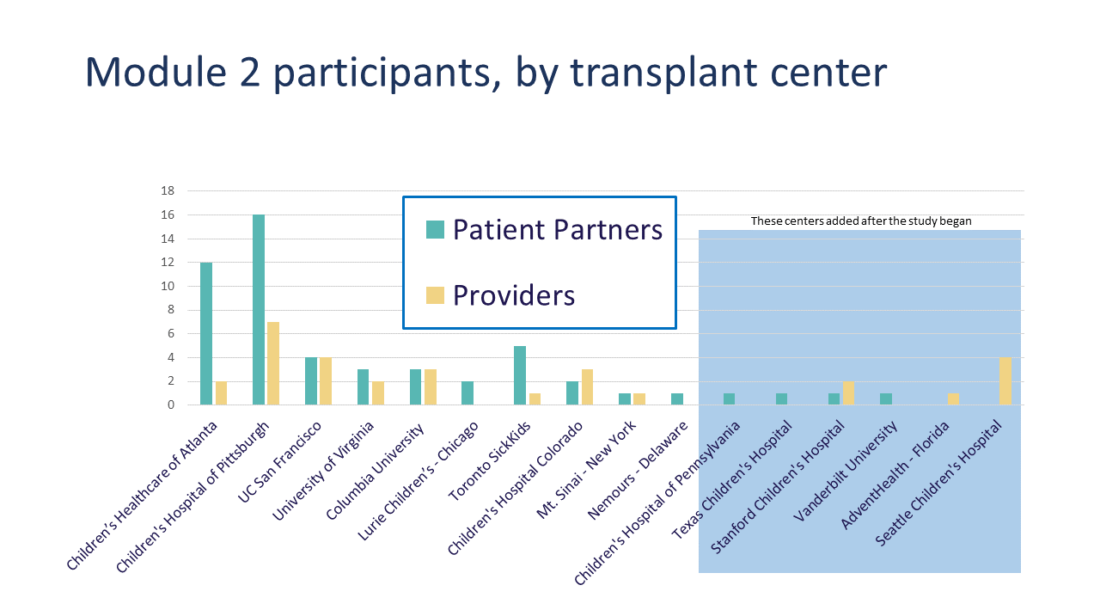
Patient Partners: you are not a rubber stamp! What could the research team do to help you feel like a true partner in a patient-centered outcomes research project?
Opportunities to interact – with the research team and other parents (29 of 52)
- Collaborative discussions – with parents sharing experiences
- Video discussion groups, not just surveys
- “Allow parents of transplant patients to interact and exchange ideas.”
Make the interaction ongoing:
- “Update us with results. How did this help other families?”
- “The discussion would come in providing me with updates on the study. what trends they are seeing and what not. not just collecting data and leaving”
Acknowledge and value experience – listen to caregiver concerns:
- “Asking my opinion and thoughts. We live with the horrible disease so we know a lot about our children’s health.”
- “Listen because we are here with our children 24/7.”
- “Asking parents about their experiences and being empathetic and understanding about the hardships these families have been through. They provide unique perspectives. “
- “This is tough. I want to contribute… but don’t want to relive the horrible times.”
Be transparent – and follow through – on how the research project will change care:
- “Acknowledging the new ideas is a great start, but if there is no implementation and reoccurring feedback to see how it's working, then nothing truly would move forward or change. “
Providers: How can we make sure that patients and families are true partners in Starzl PCOR?
Engage families at every stage of project design and implementation
Empower families: Create clear roles and responsibilities on the team
- Invest [in] them as leaders
- Have specific roles and ownership in the group/project
- “they should be challenged to bring ideas for solutions along with their concerns.”
- “Give patients authority along with asking them for their perspectives.”
Two-way communication and open-ended discussion. Opportunities for “free speak”
- “Have section in the meetings specifically for questions directed to family members and where they can ask questions freely”
- “Families have to be given an equal seat at the table; have to have time to speak.”
- “Have conversations at a basic level of understanding and leave medical jargon out of the communication.”
Adjust plans based on family feedback – and share back what adjustments were made
- “Regularly scheduled check ins…Involvement will improve as partners see their recommendations in action”
- “Listen to feedback and actually make changes based on it.”
- “Docs have to listen and be willing to actually incorporate ideas.”
- “Be fluid enough to respond to requests for change.”
Seek out diverse engagement
- “Engage families with demographic and socioeconomic diversity”
- “Ensure that those who may be underrepresented have opportunities to engage.”
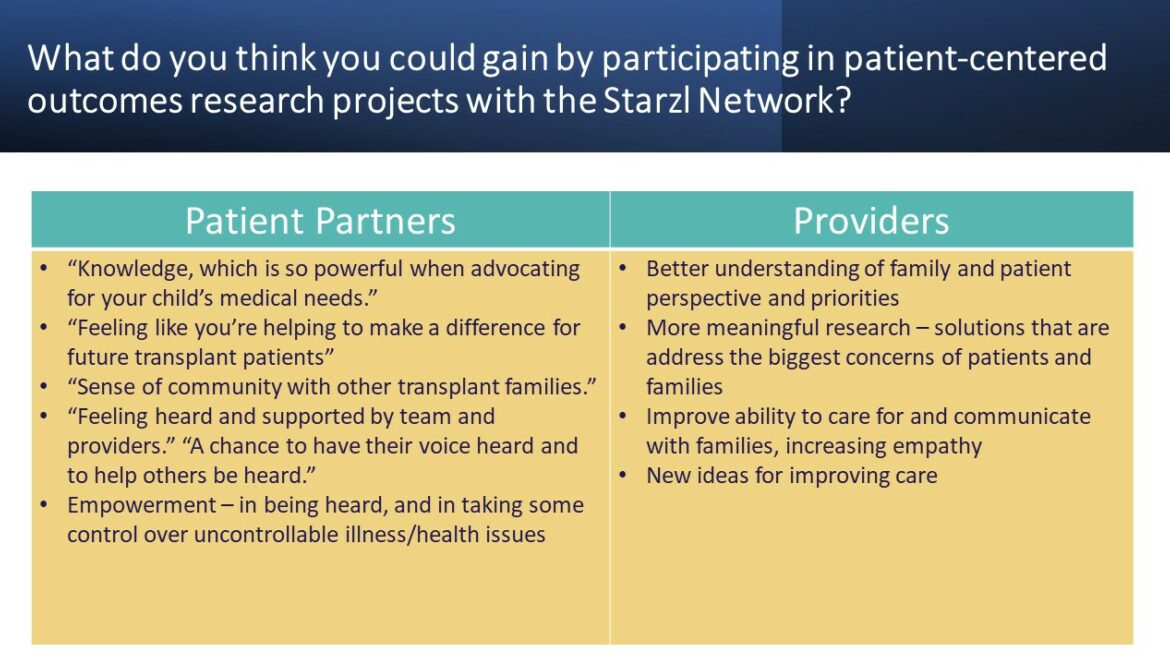
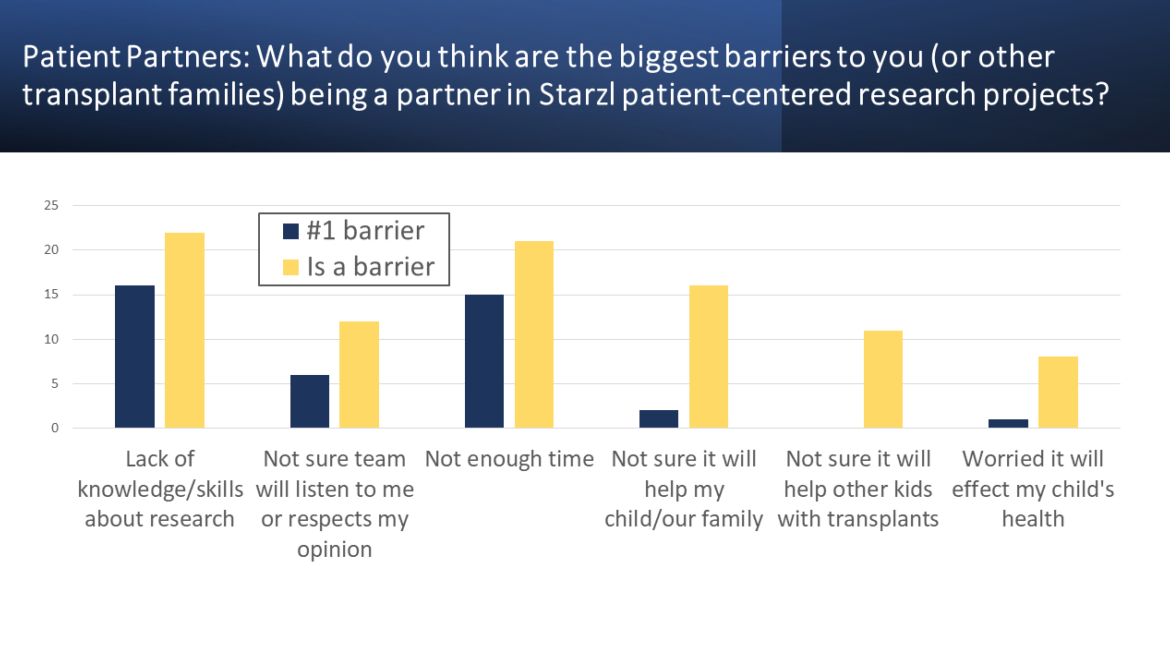
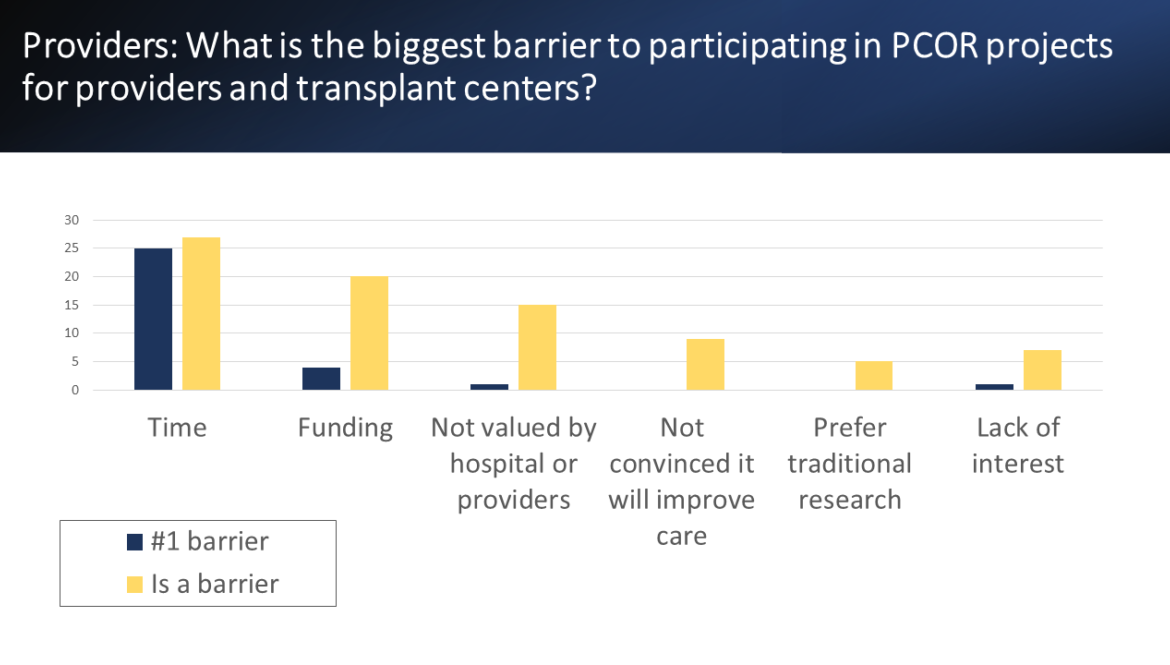
Contact Us
If you have questions or comments about the PARTNER project and/or results, please reach out to the project team.
For more PARTNER project details, please visit https://starzlnetwork.org/partner/
For more PARTNER Module 1 results, please visit https://starzlnetwork.org/PARTNER-results-module1/
